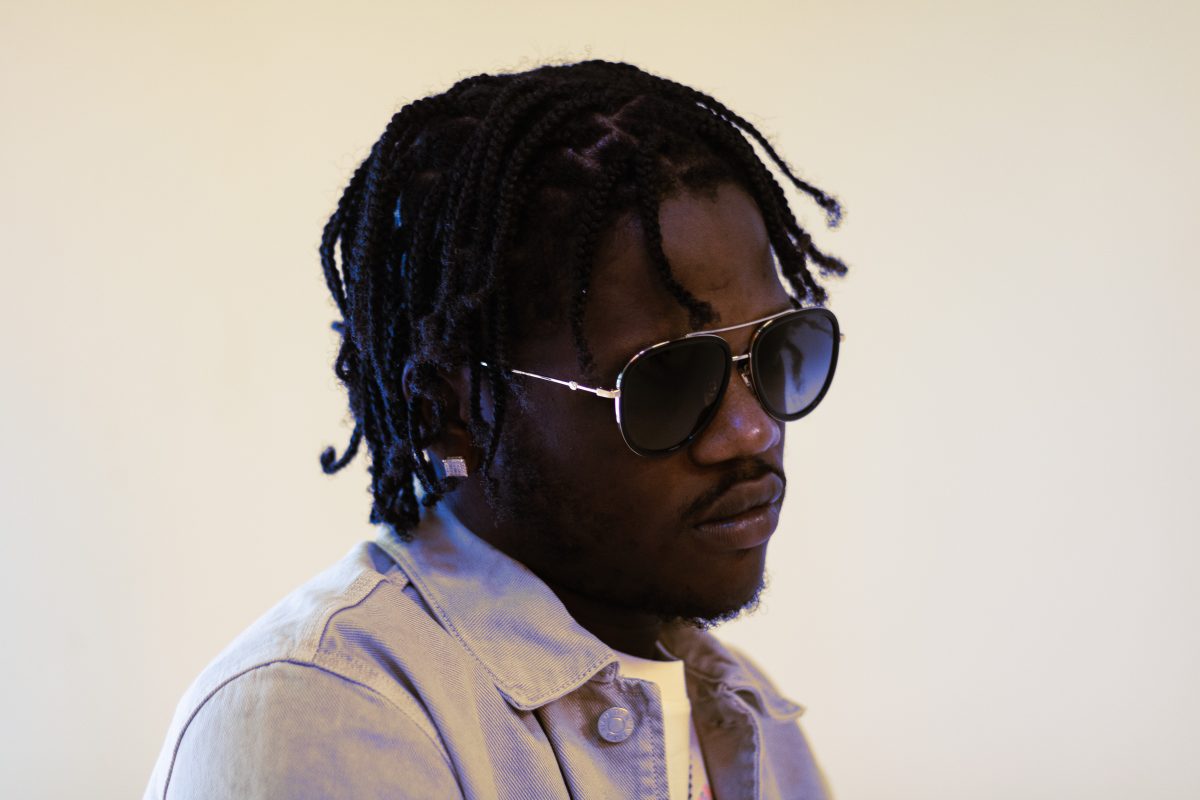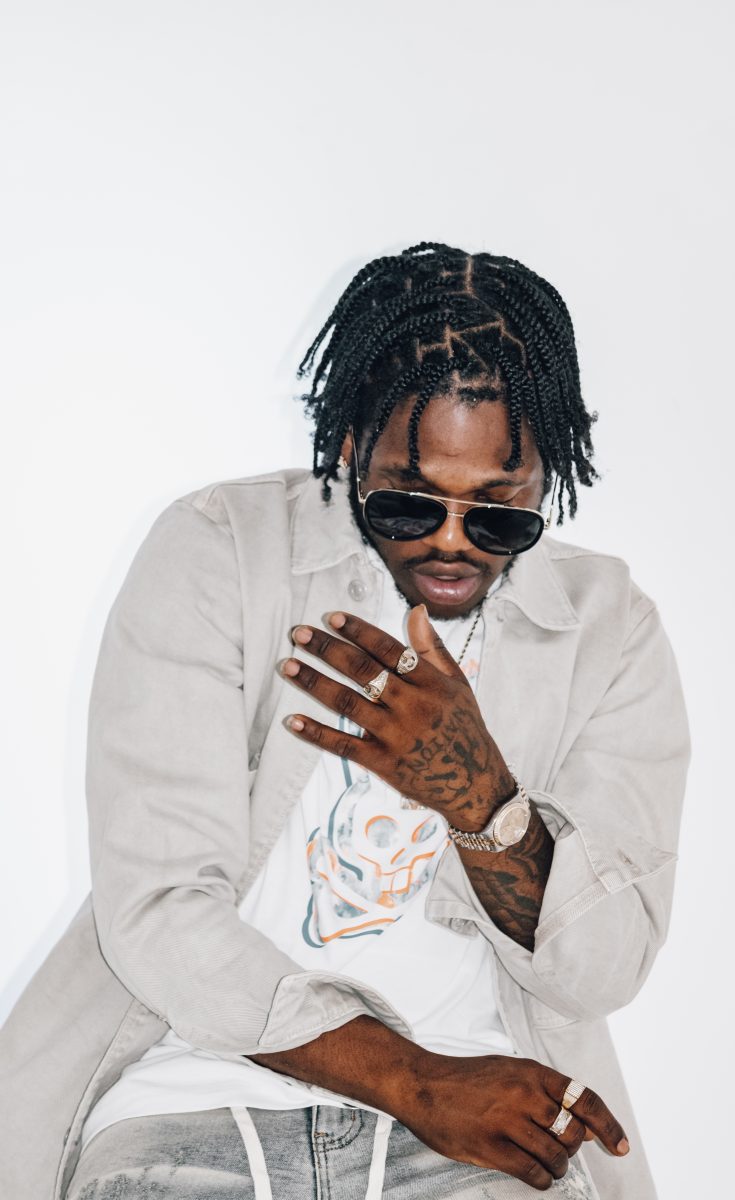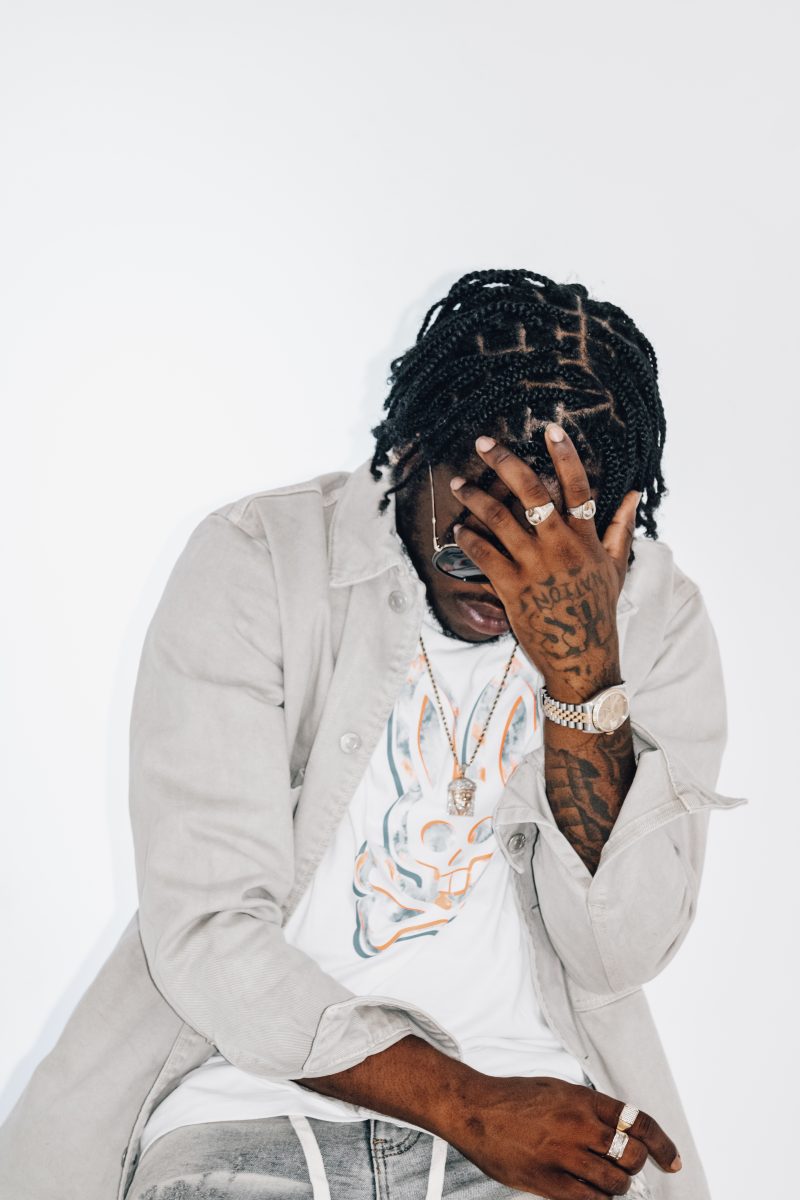Interview: Jahshii Finding Blessings In The Grimey Underbelly Of Dancehall Music

Emerging from Kingston’s famous, unforgiving, rich underbelly, Grant’s Pen native Jahshii has distinguished himself through his skills in recording studio, and on stage.
It was the year 2004 when the 21-year-old would have his first encounter with the recording process, on a track titled Me Name Jahshii. Twelve years later, he shocked Jamaica when he surfaced from the Unruly Clash, as a champion in his own right. Tunes like Cream Of The Crop, Born Fighter, Keep Up, and 25/8, have since done well to establish his record-making ability, and at this point, Jahshii has the ear of the streets.
Amassing over 60+ million views since his debut, he hit a remarkable peak post-pandemic. But what most people didn’t know, before this impressive run, Jahshii took some time to reflect on his career. “The career path weh mi choose, you have things that you have–goals weh you have to set. From morning mi know say mi wah fi do dis to di best a mi ability. But everything haffi structure right. So we just get di best set a people dem roun wi, get we energy right and di rest a guh be history,” Jahshii told DancehallMag.
When he pulled up to the studio for this exclusive interview, it was on time, and his words were reflected in his actions. His entourage was light; a mix of a few close friends, his manager, and a media team. Something very rare for an artist of his caliber. But it’s clear after we spoke with him that there was serious intention behind his restructuring and that this new direction was inspired by the vision he sees for his future in music. A bigger picture.
When asked about this vision, Jahshii’s response came with ease and clarity as though it had been pondered and mulled over to no end. “It’s a dream enuh,” he begins, clarifying the vision.
“You have to set goals in life as a yute weh believe inna miself. Mi know say di road towards every goal is one step at a time, so mi always set short term and long terms goals. Mi sing bout dem inna mi songs. Like tings weh mi d’even achieve yet but mi have plans fi achieve mi sing bout it and give miself di courage and momentum fi work towards it yuhzimmi? An tings like dat weh mi sing a jus fi remind mi say mi haffi guh prove dat to di world.”
But Jahshii, real name Mluleki Tafari Clarke, was not always this intentional and decided on his musical path. The deejay had been finding great success playing football at the secondary level for his home school Excelsior, when his music first began to break.
It could not have been an easy choice to make. “Mi love talent, and fi know say god bless mi wid twice talent, me wouldn’t want drop out and know say mi have dem talent deh an nuh use dem, suh if a neva music it would be football,” he said with a solemn straight face that betrayed experience beyond his years.
The look on his face was not sad, that would be too simple to describe. There was hope in his eyes, and love for life, but mixed in this solemn gaze was also grief. In late 2021, Jahshii lost his close friend and producer Tadmar to a shooting, something that has no doubt left the young artist scarred. To be fair, much of the last three years has been riddled with loss and grief for many and perhaps this is one of the elements that resonate highly in his music.
Jahshii is still riding the high of the embrace he received from audiences all over Jamaica at his recent Rebel Salute Performance. Which is one of many footprints in a traceable journey of Jahshii’s ennoblement with the Jamaican audiences. You can trace the increase of his favor from his 2022 Sumfest debut and the heartfelt reasoning about the disturbing culture of violence against women, right back to his latest performance in Grenada.
The 1st Nation boss emphasizes his love and dedication to all aspects of creating music when asked, “Memba seh our music is a very creative ting enuh, so creating the music and also presenting it to the people is a whole joy.” Although he has a rounded skillset, this young artist works hard to capitalize on every opportunity to connect with the crowd and takes that connection to the highest level. His 2022 OnStage performance earned the cheers and respect of Winford Williams, along with many others who felt lauded his old-school dancehall set. A similar outcome was observed at Rebel Salute, where his reasoning with the crowd erupted into an embrace by the likes of Mutabaruka and many more.
This is notable for many reasons, the most key of which is the fact that Jamaican audiences may not understand sound quality, but their understanding of stagecraft is advanced. Jamaican music has an excellent culture of performance stemming back all the way to artists like Buju Banton, and Beres Hammond, who are known to take their sets above and beyond. For a young artist like Jahshii to be able to genuinely impress audiences that have grown accustomed to the highest level of performance, barring Michael Jackson and Beyonce, is telling. It’s an indication that he belongs and he is here to stay. Admittedly, dancehall artists in recent years have not been famous for their performance art in the same way that contemporary reggae artists like Chronixx, Protoje, Jah9, and the Grammy award-winning Kabaka Pyramid have. Jahshii is indicating a change in that recent trend.
To describe his zeal and genuine love for Jamaican music, without the use of colloquial terms, though clear and accurate, might mistranslate his perspective. To say Jahshii is from the cloth of Bounty Killer, with whom he recently collaborated on a track, Shabba Ranks, and even the likes of Capleton would be accurate. But to say ‘di ting deep fi him, pon a spiritual level’ reveals a more personal layer.
After all, the aforementioned artists not only have shown a great love for the music over the years but they have also taken a stand on social issues and supported their communities. In the words of the young artist himself, “Mi think Dancehall is a whole culture by itself so it’s a feeling and a vibration that forward to my mind–not even just to my mind, to the whole spirit of di ting. A mi passion enuh and passion is from di heart suh yuh know it’s a blessing also.”
Blessing, a word he used frequently throughout the interview, which in many ways also speaks to his perspective on life in general. It’s nothing so simple as naive optimism, but more so an ability to identify strengths and weaknesses, gifts and curses. A crucial type of wisdom for the entertainment space.
Ironically, his first name Mluleki roughly translates to Blessing.
Faith and belief are evidently a strong part of Jahshii’s personal brand, as one of the top dancehall artists helped to popularize the slang true believer over the last few years. Raised by a rasta father, listening to culture and reggae music, it’s fair to say he was raised with a strong sense of right and wrong. A sense that shines through despite his grimey street aesthetic. His latest single Faith with Jahllano is an apt reflection of this.
Jahshii is wise beyond his years, we can see it in the philosophy of his music, which speaks of the spiritual victories of everyday people doing the right thing to keep the world turning. He uses this same wisdom to distill from the darkness of Jamaican street life, stories of survival and eventually hope.
Many, who commend Jahshii’s efforts, applaud the traditional approach he takes to the music, but that’s not what really sets the young artist apart. It’s his authenticity. He’s not doing any of this for praise, “We know say popularity important inna di game still but we nah try look good name fi nuh body love we too same way. We just a do di right ting”


